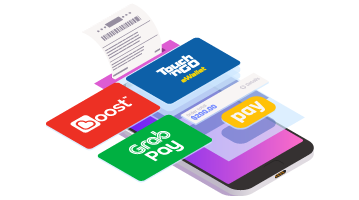
In today’s digital era, businesses are increasingly relying on payment gateways to securely process financial transactions online. By utilising a payment gateway, businesses can provide customers with a convenient and secure way to make payments for goods and services. This not only enhances the overall customer experience but also helps businesses streamline their payment processes and reduce the risk of fraud.
Importance of Streamlined Payment Processing
Implementing a streamlined payment processing system is crucial for businesses today. The importance of having a seamless payment gateway cannot be overstated. Efficient payment processing enhances customer satisfaction, boosts sales, and facilitates financial transactions. By utilising a reliable payment gateway, businesses can offer secure and convenient payment options to their customers, leading to increased trust and loyalty. Moreover, a streamlined payment process can help reduce cart abandonment rates and improve overall user experience on e-commerce platforms. Ensuring smooth and hassle-free transactions is key to driving business growth and staying competitive in the digital marketplace.
In today’s fast-paced business landscape, businesses need to prioritise streamlining their payment processing to stay ahead of the curve. A well-integrated payment gateway not only simplifies transactions but also provides valuable insights into customer behaviour and preferences. This data can be leveraged to personalise marketing strategies and tailor offerings to meet customer needs effectively. Additionally, an efficient payment processing system can save time and resources, allowing businesses to focus on core operations and strategic initiatives. Embracing a streamlined payment gateway is not just a trend but a necessity for businesses looking to thrive in the modern economy.
Expanding Customer Reach with Various Payment Options
Offering various payment options is crucial for businesses seeking to expand their customer reach in today’s competitive market. By providing diverse payment methods such as credit cards, digital wallets, and online bank transfers, businesses can cater to a wider audience with different preferences. This flexibility not only enhances customer convenience but also builds trust and credibility, ultimately leading to increased sales and customer retention. Embracing a range of payment options empowers businesses to tap into new customer segments and markets, driving growth and fostering long-term relationships with customers.
Moreover, diversifying payment options can help businesses stay ahead of the curve and adapt to changing consumer behaviours. With the rise of e-commerce and mobile shopping, customers expect seamless and secure payment experiences. By offering a variety of payment methods, businesses can meet these evolving demands and provide a frictionless checkout process that encourages repeat purchases. This strategic approach not only improves the overall customer experience but also positions businesses as innovative and customer-centric in a competitive landscape. In essence, expanding payment options is not just about transactions; it’s about meeting customer needs, driving business growth, and staying relevant in a dynamic marketplace.
Integration Capabilities with E-commerce Platforms
When it comes to the integration capabilities with e-commerce platforms, utilising a reliable payment gateway can significantly enhance the efficiency and security of online transactions. Integration with popular e-commerce platforms allows businesses to seamlessly accept payments from customers across various channels. This seamless integration not only provides a smooth checkout experience for customers but also streamlines the payment process for businesses, leading to increased sales and customer satisfaction. By connecting a payment gateway to an e-commerce platform, businesses can easily manage transactions, track payments, and ensure a secure payment environment for both buyers and sellers.
Moreover, integration capabilities with e-commerce platforms enable businesses to expand their reach and tap into new markets by accepting a wide range of payment methods. With the ability to accept credit cards, debit cards, e-wallets, and other payment options, businesses can cater to the diverse preferences of customers, resulting in higher conversion rates and improved customer retention. Additionally, integrating a payment gateway with an e-commerce platform allows businesses to access valuable data and insights that can be used to optimise pricing strategies, improve marketing efforts, and drive business growth. By leveraging the integration capabilities of a payment gateway, businesses can stay ahead of the competition and meet the evolving needs of consumers in today’s fast-paced digital landscape.
Real-Time Transaction Monitoring and Reporting
Real-time transaction monitoring and reporting is crucial for businesses using payment gateways today. This feature allows businesses to track transactions as they happen, providing real-time insights into their financial activities. By monitoring transactions in real-time, businesses can quickly identify any fraudulent or suspicious activities, enabling them to take immediate action to protect their financial assets. Additionally, real-time reporting offers businesses up-to-date information on their cash flow and sales trends, helping them make informed decisions to optimise their financial performance. With the ability to access transaction data instantly, businesses can analyse their revenue streams, identify opportunities for growth, and streamline their financial operations for increased efficiency and profitability.
Cost-Effectiveness and Efficiency of Payment Gateways
Online payment gateways offer a dual advantage of cost-effectiveness and efficiency for businesses. By utilising a payment gateway, companies can streamline their payment processes, reducing manual errors and saving time. The automated nature of payment gateways allows transactions to be processed swiftly and accurately, enhancing the overall efficiency of financial operations. Furthermore, the cost-effectiveness of payment gateways lies in their ability to eliminate the need for traditional payment methods that may incur higher transaction fees. This cost-saving aspect makes payment gateways a valuable asset for businesses looking to optimise their financial transactions.
Overall, the cost-effectiveness and efficiency of payment gateways make them indispensable tools for modern businesses seeking to enhance their financial operations and customer satisfaction levels.
Conclusion
In conclusion, implementing streamlined payment processing, offering various payment options to expand customer reach, simplifying recurring billing processes, integrating with e-commerce platforms, enabling real-time transaction monitoring and reporting, and utilising cost-effective and efficient payment gateways are crucial strategies for enhancing overall payment operations and driving business growth in today’s digital landscape.